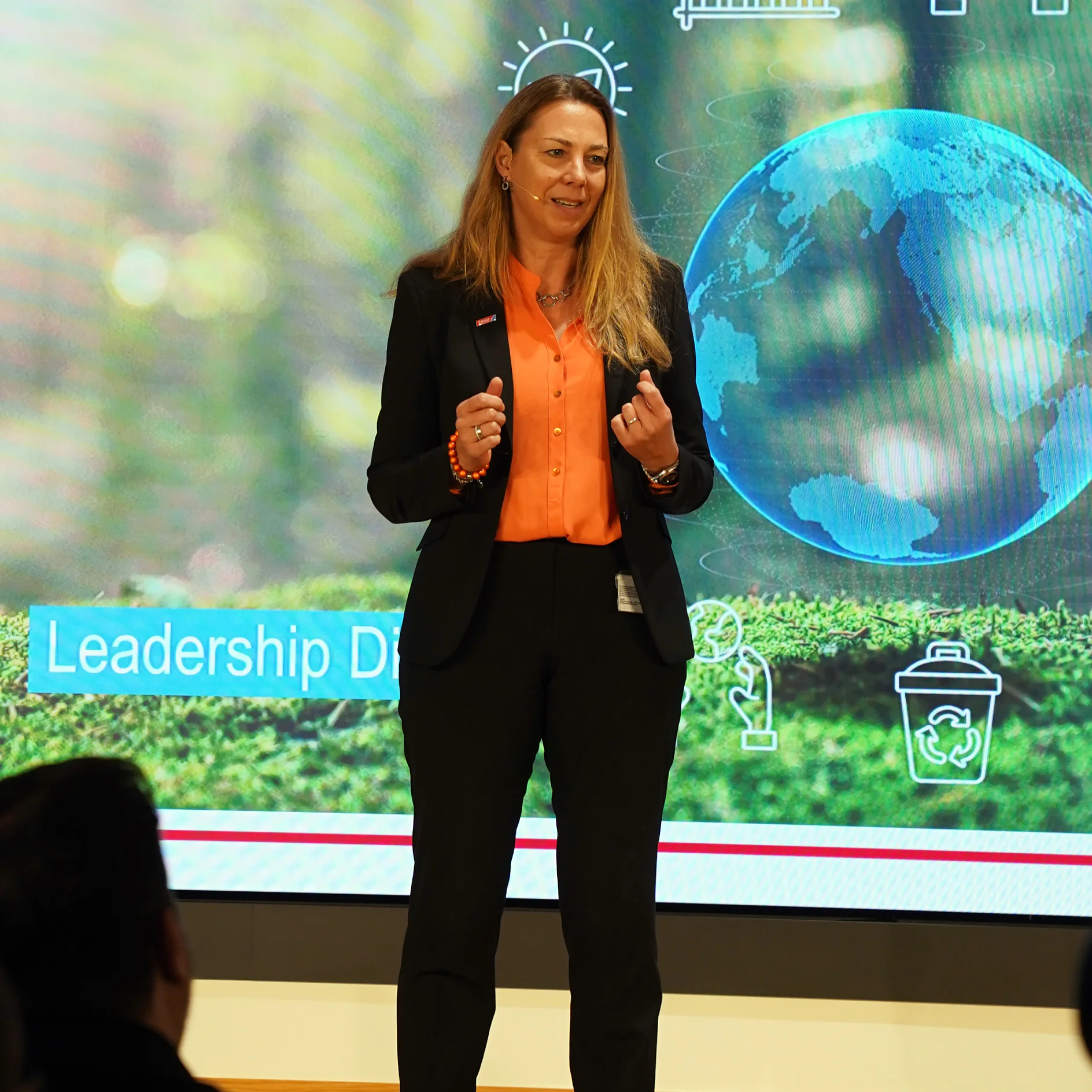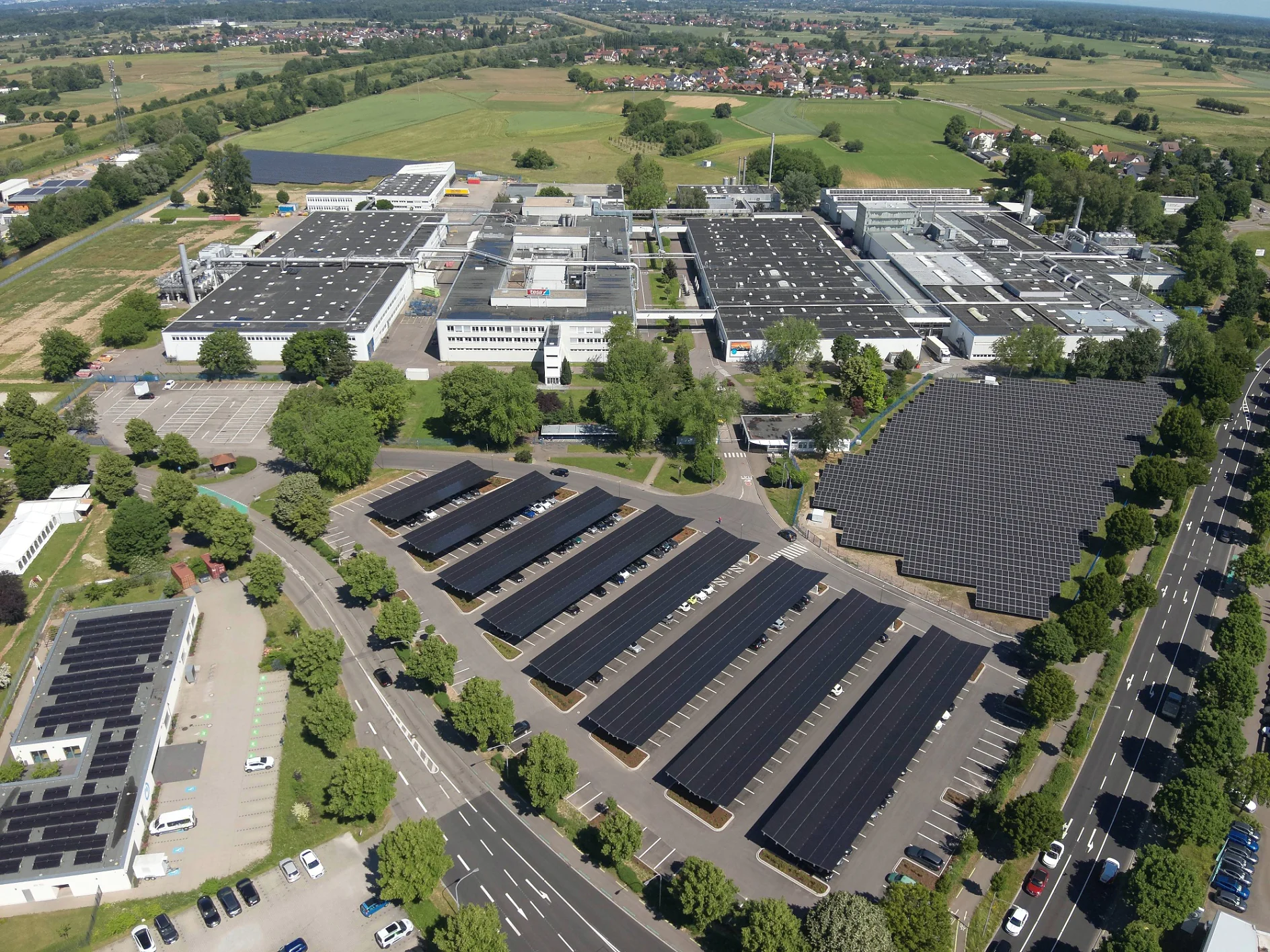From October 13 to 16, 2025, tesa held its fourth international Sustainability Week under the motto "Decoupling growth from emissions and driving customer value." The global event at the Norderstedt headquarters and at all international locations impressively demonstrated that sustainable growth and emissions reduction are not mutually exclusive – on the contrary, they are the key to future business success.

Sustainability in action: tesa's fourth Sustainability Week shows path to climate-neutral production
Sustainability
Impressive milestones on the path to climate neutrality
tesa has already made significant progress toward climate-neutral production by 2030. CO₂ emissions (Scope 1 and 2) have been reduced by 39 percent since 2018 – equivalent to planting 3 million trees annually. An important milestone: 90 percent of global electricity demand is now covered by renewable energy.

"Decoupling growth from emissions poses major challenges for companies worldwide. At tesa, we have set a clear course: With our 'we do' sustainability strategy, we are not only driving the reduction of our carbon footprint, but also developing innovative solutions at the same time. One example of smart solutions is our AI-supported energy platform, which integrates energy management at all tesa sites. It enables intelligent control of facilities and provides global monitoring as well as forecasts for daily operations and long-term energy planning," explains Dr. Ingrid Sebald, Member of the Executive Board for Technology at tesa SE.
300 million Euro investment in a more sustainable future
By 2030, tesa is investing around 300 million euros in climate-neutral production. The company is focusing on solvent-free production, efficiency improvements, and advanced technologies. The consistent implementation of this strategy is recognized by leading organizations: In 2025, tesa received the CDP (opens in a new window or tab) A-Rating for outstanding climate action for the second consecutive year and received the EcoVadis Gold Medal for the third consecutive year, placing the company among the top 2 percent of all globally assessed companies.

Concrete examples of the sustainability strategy include the solar park in Offenburg, which went into operation in 2025 with more than 13,000 PV modules, covering around 25 percent of the plant's annual energy requirements and saving approximately 1,200 tons of CO₂ per year. In addition, the Hamburg plant is planned to be connected to the hydrogen network, which will result in annual CO₂ savings of around 6,000 tons.
Innovation as a driver for sustainability
In technology development, tesa is breaking new ground and creating sustainable added value for industrial customers in various sectors. Particularly noteworthy is the "Debonding on Demand" technology, which was awarded the MMK Award of Excellence 2025 and enables permanent adhesive bonds to be deliberately released – an important contribution to the circular economy.
Another example of smart solutions is the AI-supported energy platform, which integrates energy management at all tesa sites. It enables intelligent control of facilities and provides global monitoring as well as forecasts for daily operations and long-term energy planning.
Global impulses and regional initiatives
A highlight of Sustainability Week was the new "Sustainability in Action" format: In 8-minute short presentations, employees from various areas such as energy, procurement, sales, and packaging presented innovative sustainability solutions. The session illuminated both sides of the sustainability debate – from challenges to opportunities through new technologies. A keynote provided insights into international climate policy.
In parallel, workshops on diversity, sustainable product design, and supply chain responsibility took place at headquarters, while international locations organized their own activities – from a global livestream in Greater China to success stories from Asia Pacific, a Green Day in France, initiatives in Mexico, and recycling initiatives in North America.
Sustainability as a central strategic pillar
Thomas Schubert, Head of Sustainability, emphasized: "We are in the second wave of transformation: decoupling growth from emissions. A new CO₂ management dashboard makes it possible to break down emissions by material types and suppliers and has thus become a new powerful tool for identifying hotspots."
The company has expanded its portfolio of more sustainable product solutions to around 80 products that make a positive contribution to sustainability. With over 600 scientists, engineers, and product developers worldwide, tesa relies on scientifically sound approaches for innovative, more sustainable products and processes.
The fourth Sustainability Week once again made clear: Sustainability is and remains a central element of tesa's corporate strategy and can only be successfully implemented with the commitment of all employees worldwide. The numerous initiatives in all regions show that tesa is collectively on the right path to achieving its ambitious goals and creating real customer value through sustainable growth.